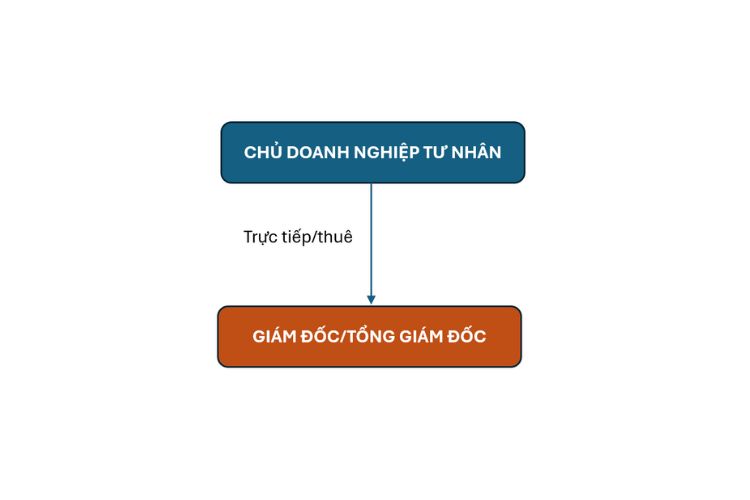The owner of a private enterprise can either directly manage the business or hire a Director or General Director to oversee and manage its operations.
1. What is a Private Enterprise?
A private enterprise is a business owned by a single individual who is fully liable for all of its activities with all of their assets. Each individual is only permitted to establish one private enterprise. The owner of a private enterprise cannot simultaneously be the owner of a business household or a general partner of a partnership.
A private enterprise is not permitted to issue any type of securities. It also cannot contribute capital to or purchase shares or capital contributions in a partnership, a limited liability company, or a joint-stock company.
2. Organizational and Management Structure of a Private Enterprise
According to Article 190 of the Law on Enterprises of Vietnam 2020, the owner of a private enterprise has full authority to decide on all business activities of the enterprise, as well as the use of profits after taxes and the fulfillment of other financial obligations as prescribed by law.
The owner of a private enterprise may either directly manage or hire a Director or General Director to manage and run the business operations. In this case, the owner of the private enterprise remains personally liable for all of the enterprise’s business activities.

The owner of a private enterprise is the legal representative, representing the enterprise as an applicant for civil matters, a plaintiff, a defendant, or a person with related rights and obligations before an arbitration board or a court, and exercising other rights and obligations as prescribed by law.
3. Analysis of the Advantages and Disadvantages of a Private Enterprise
Below is an analysis of the advantages and disadvantages of a private enterprise:
| Advantages | Disadvantages |
|---|---|
| Simple, easy to establish and manage: Private enterprises have a simple, lean organizational structure and quick, straightforward establishment procedures. | Unlimited liability: The owner is liable for all business activities with all of their personal assets, which poses a high risk if the business faces difficulties. |
| Complete decision-making authority: The owner has the right to decide on all business activities without needing to consult with anyone else. | Difficult to expand: Capital mobilization is limited as the enterprise cannot issue shares or receive capital contributions from multiple individuals like other business entities. |
| Operational flexibility: With fewer complex legal procedures, the business can easily adapt its operations to market conditions. | No separate legal entity status: The enterprise does not have a separate legal personality; the owner is directly responsible for the enterprise’s obligations. |
| Easy to secure bank loans: There is no distinction between personal and business assets, making it easier to borrow from banks or credit institutions. | Limited ability to raise capital: Unable to contribute capital or purchase shares in other companies, which limits the potential for expansion. |
| Low management costs: The enterprise does not require high costs for management, personnel, or complex administrative procedures. | Difficult to transfer ownership: The transfer of the enterprise or its capital is highly restricted and primarily based on individual agreements. |


